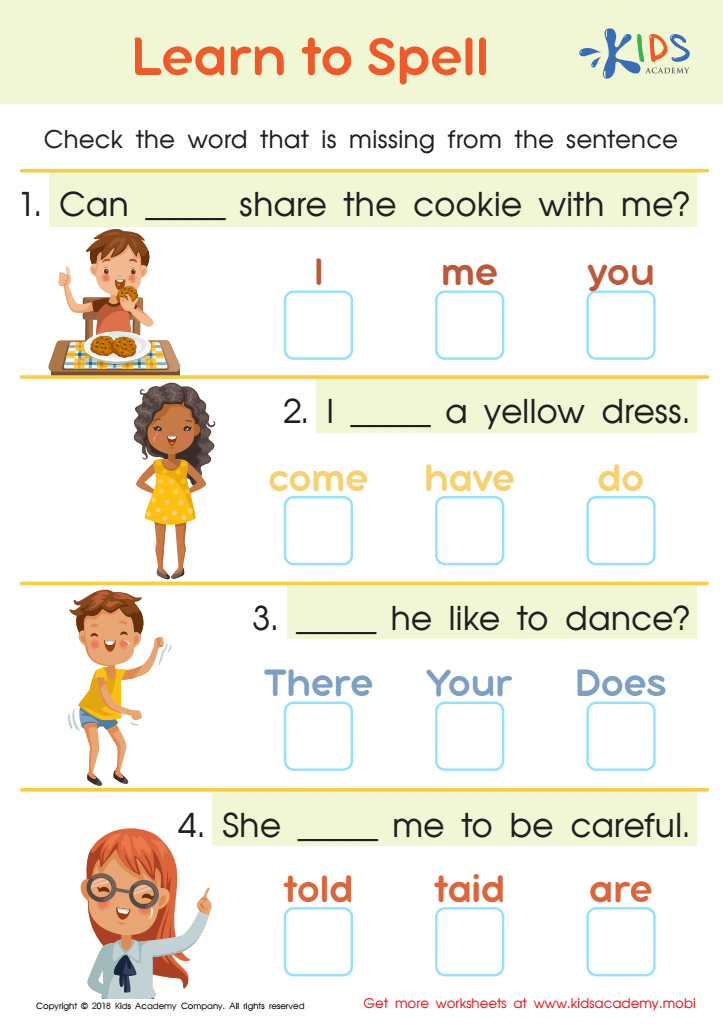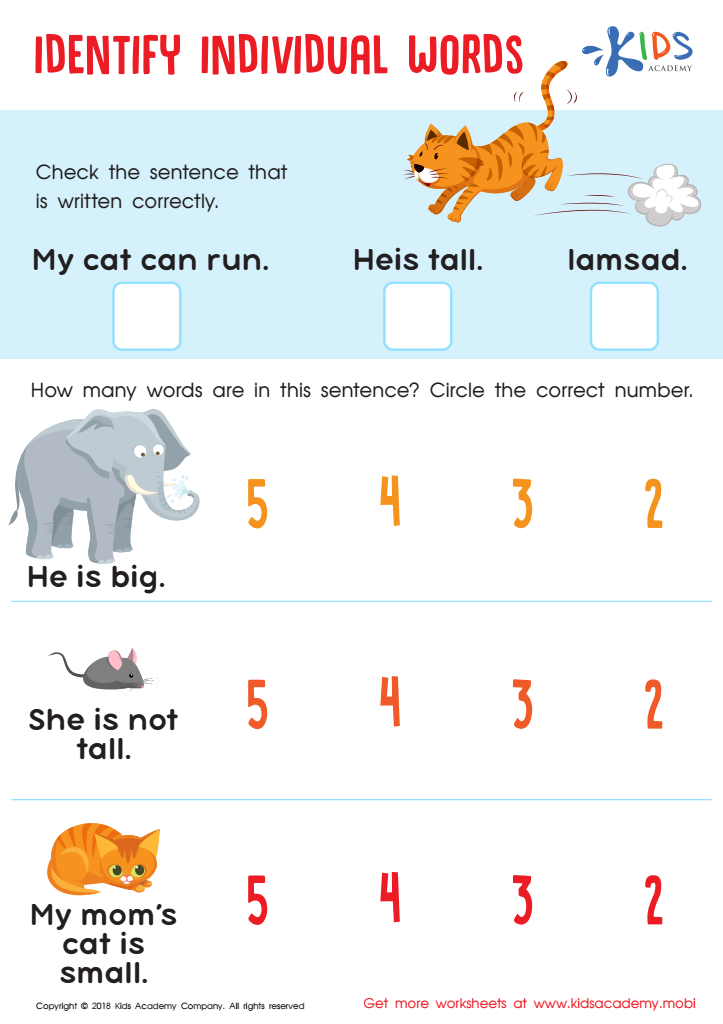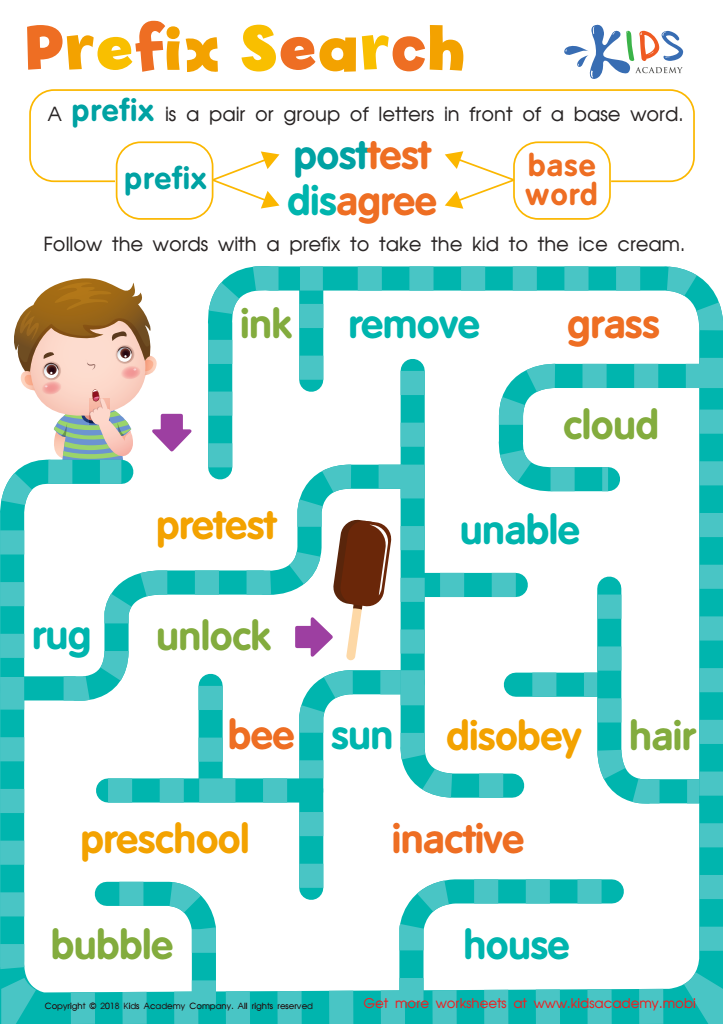Word identification Normal Grammar Worksheets for Ages 6-9
5 filtered results
-
From - To
Boost your child's reading and writing skills with our "Word Identification Normal Grammar Worksheets for Ages 6-9"! These engaging worksheets are designed to help young learners recognize high-frequency words and understand basic grammar rules. Through fun and interactive exercises, kids will enhance their vocabulary, improve sentence structure, and build foundational language skills. Perfect for both classroom and home use, our printable worksheets make learning grammar an enjoyable adventure. Visit Kids Academy to explore our extensive collection and give your child the tools they need to succeed in language arts. Start their learning journey today!


Learn to Spell Worksheet


Identify Individual Words Worksheet


Phonics and Word Recognition: Assessment 1 Worksheet


Reading: Prefix Search Worksheet


Phonics and Word Recognition: Assessment 2 Worksheet
Word identification and normal grammar are crucial for ages 6-9 as they underpin foundational literacy skills, essential for academic success and overall cognitive development. This age period, often referred to as the early elementary years, is critical for language acquisition. Mastery in word identification, which involves recognizing and understanding words accurately and quickly, allows children to read fluently. This fluency improves comprehension, enabling them to understand and engage with texts meaningfully, which is important for learning across all subjects.
Grammar, on the other hand, provides the structural framework for language. Understanding normal grammar helps children construct clear and coherent sentences, improving communication skills both verbally and in writing. Proper grammar usage also enhances their ability to follow and predict patterns in language, enabling more effective learning and retention.
Moreover, successful word identification and grammar influence self-esteem and confidence. Children who struggle with these skills may fall behind academically, leading to frustration and reduced motivation. Conversely, proficiency empowers them to participate actively in classroom discussions, complete assignments effectively, and enjoy reading.
Therefore, parents and teachers should prioritize these aspects to ensure children develop strong literacy foundations, paving the way for future academic achievements and lifelong learning.
 Assign to My Students
Assign to My Students







.jpg)







